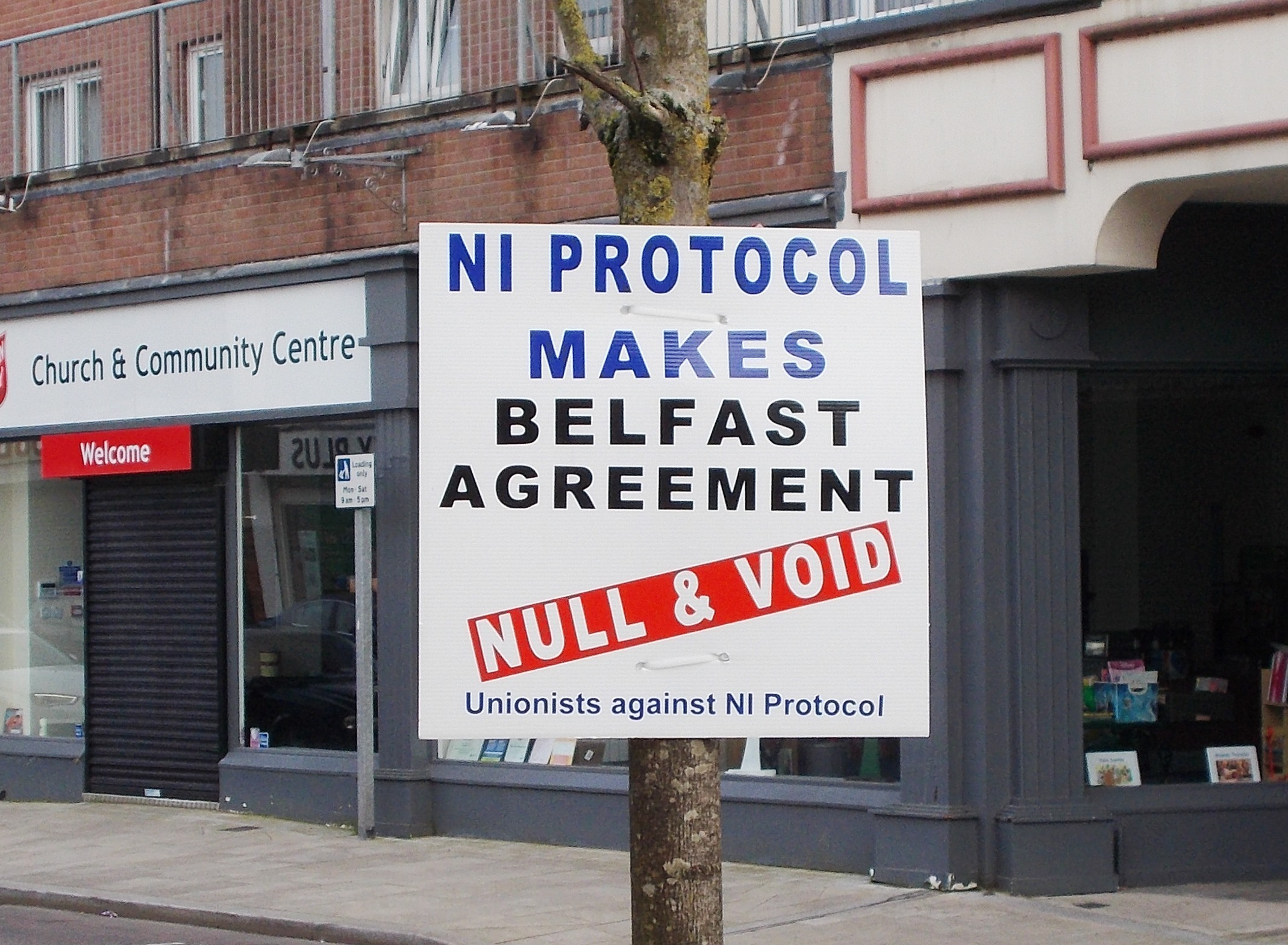Katy Hayward (Queen’s University Belfast)
One of the more unusual similes I have ever heard was a senior Irish official’s description of the 1998 Good Friday (Belfast) Agreement as being like a “blancmange”. He was attempting to describe its soft and smooth qualities which made it as easy as possible for all parties to swallow.
Of course, a blancmange needs a mould and it must be chilled to set. Take away the mould and raise the room temperature and all we’re left with is a sweet gooey puddle.
The 1998 Agreement has certainly been squeezed for all its worth over the course of its existence, particularly so in the past six years. It is possible for nationalists to view it as a “toolbox” for achieving Irish unity and for unionists to see in it the “guarantee” and confirmation of British sovereignty in Northern Ireland. The Agreement is malleable enough to withstand a certain amount of prodding and shaking.
But twenty-four years after the Agreement and just over twenty-four months since the UK officially left the European Union, unionists and nationalists alike are raising concerns that the Agreement is in danger of losing its integrity.
For nationalists, this process began with the UK’s decision to withdraw from the European Union. For them, Brexit itself is simply “incompatible” with the Good Friday Agreement and “totally comes into conflict” with it. Speaking in 2018, then-Taoiseach Leo Varadkar was also blunt:
Brexit has undermined the Good Friday Agreement and is fraying the relationship between Britain and Ireland. Anything that pulls the communities apart in Northern Ireland undermines the Good Friday Agreement, and anything that pulls Britain and Ireland apart undermines that relationship.
The Protocol on Ireland/Northern Ireland attempted to “protect the 1998 Agreement in all its dimensions” by effectively mitigating some of the effects of Brexit on Northern Ireland, most specifically with respect to avoiding a hard Irish border for the movement of goods. Indeed, Prime Minister Johnson claimed that, in the Protocol, “we and our European friends have preserved the letter and the spirit of the Belfast/Good Friday agreement”.
But in so doing, it changed the trading relationship between Britain and Northern Ireland. Concern for “the economic integrity of the United Kingdom and Northern Ireland’s position in it” was behind unionist objections to all versions of the Protocol (February 2018, November 2018, October 2019). These concerns have not been mitigated. For example, Lord Trimble claims that the Protocol has “subverted the main safeguards within the Belfast Agreement”. And Paul Givan’s statement of resignation as First Minister (3 February 2022) lamented the disruption caused by the Protocol to the post-Agreement ‘balance’:
Our institutions are being tested once again and the delicate balance created by the Belfast and St Andrews Agreements has been impacted by the agreement made by the United Kingdom Government and the European Union which created the Northern Ireland Protocol.
Two and a half years after negotiating it, the UK Government’s position is unequivocally of the view that the Protocol causes damage to “all three strands of the Good Friday Agreement”. Giving evidence to a House of Commons committee, Secretary of State for Northern Ireland, Brandon Lewis (25 March 2022) stated:
It is very clear that the Protocol in its current format and the implementation of it that the EU are seeking doesn’t work for the people of Northern Ireland. It is fundamentally undermining the Good Friday Agreement both in terms of North/South Ministerial Councils [sic]; east-west trade, and Stormont institution [sic] itself.
The fact that these difficulties have been caused by the actions and decisions of the UK government and DUP politicians is almost too obvious a point to note.
Just as nationalist concern about the change in the relationship between north and south on the island of Ireland (Strand Two) underlies their concern that Brexit undermines the 1998 Agreement, so unionist concern about the impact of the Protocol on east-west relations between Britain and Ireland (Strand Three) is at the heart of their concerns for the Agreement. This is of little surprise because both nationalists and unionists were reassured that the 1998 Agreement made their long-term constitutional aspiration more certain.
In and of themselves, the conflicting interpretations of which strand of the Agreement is most in peril and what has posed the greatest threat to it are not the problem. The truth is that all three interlocking and interdependent strands are wobbling dangerously.
The mould for the Good Friday/Belfast blancmange was necessarily more than goodwill and fine intentions – it required legal form and shared commitment to uphold it. Adherence to the legal framework of the Agreement is ever important. So, too, is a willingness from all sides to cool the atmosphere. Tempting as it may be to raise the heat and shake a fist – especially in the run-up to an election – a sticky mess would be of no use to anyone.
Katy Hayward is Professor of Political Sociology at Queen’s University Belfast and a Senior Fellow of the UK in a Changing Europe thinktank, where she leads a major ESRC-funded project on the topic of the future and status of Northern Ireland after Brexit. She is a Fellow of the Academy of Social Sciences (2020), an Eisenhower Fellow (2019) and a Fellow in the Senator George J. Mitchell Institute for Global Peace, Security and Justice at Queen’s University.
The views expressed in this blog reflect the position of the author and not necessarily that of the Brexit Institute Blog.
Image Credit: By Whiteabbey – Own work, CC BY-SA 4.0, https://commons.wikimedia.org/w/index.php?curid=101272772



